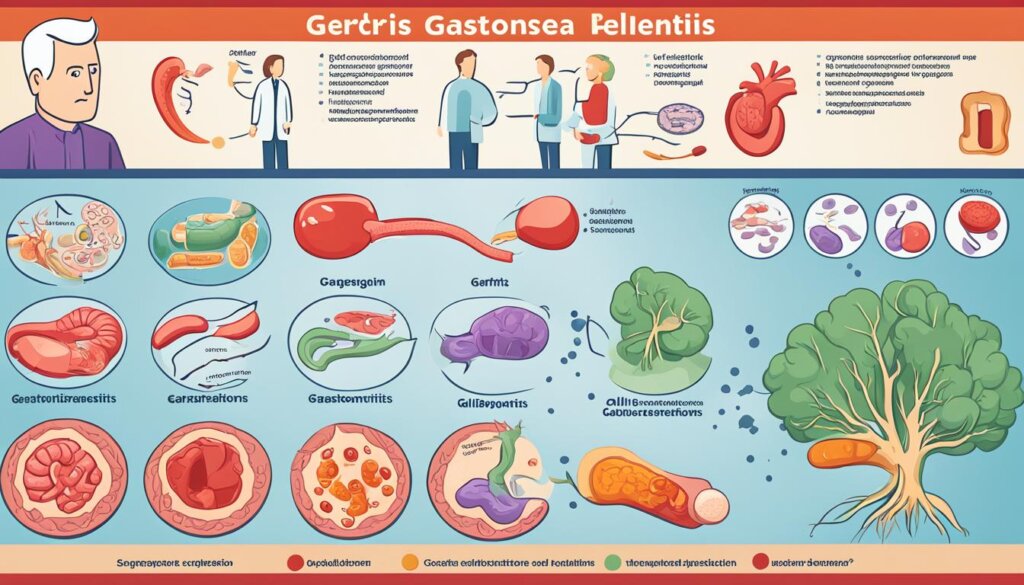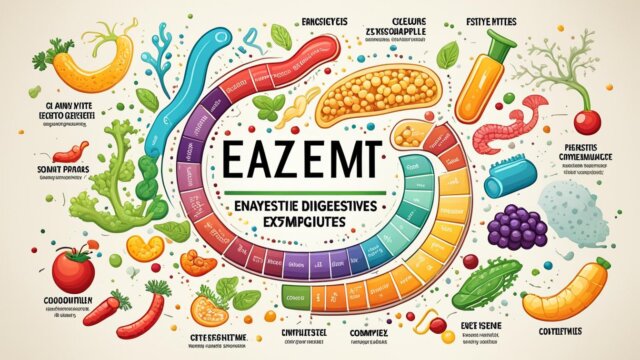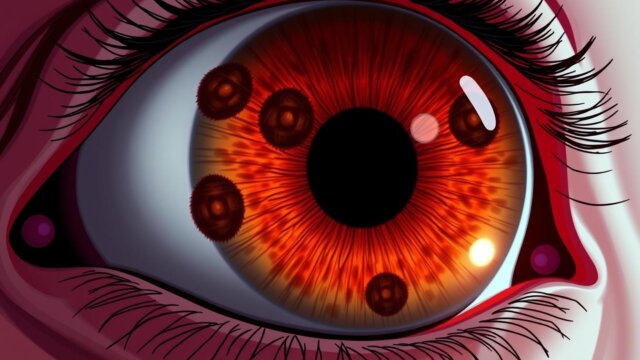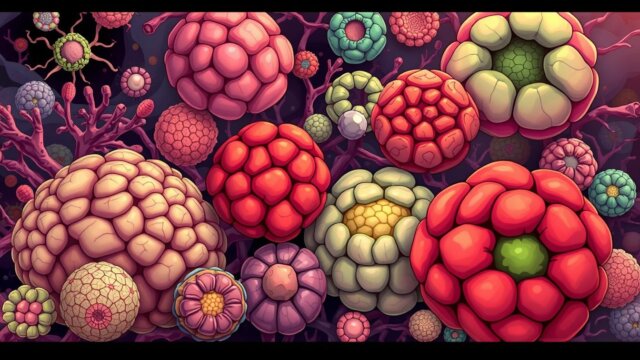FTC disclaimer: This post may contains affiliate links and we will be compensated if you click on a link and make a purchase.
Indigestion affects 60 million Americans every day. This shows how common this digestive issue is. It can be a one-time problem after eating too much or a constant issue. Knowing what causes it, what symptoms you might see, and how to treat it is key to feeling better.
Indigestion, or dyspepsia, makes you feel bad in your upper belly. You might feel pain, burning, bloating, nausea, or feel too full even after eating a little. Sometimes, it’s just from eating too much or eating things that are fatty or spicy. But if it keeps happening, it could mean something more serious.
Key Takeaways
- Indigestion is a common digestive issue affecting millions of Americans every day.
- Symptoms include abdominal pain, burning, bloating, nausea, and feeling full quickly.
- Causes range from lifestyle factors to underlying medical conditions like GERD, ulcers, and IBS.
- Effective treatments involve lifestyle changes, medications, and in some cases, alternative therapies.
- Seeking medical advice is important for persistent or severe indigestion.
What is Indigestion?
Defining Indigestion and Its Symptoms
Indigestion, also known as dyspepsia, is a common issue. It can happen sometimes or all the time for many people. About 20% of people often get indigestion. The main signs include pain, a burning feeling, or discomfort in the upper belly. You might also feel too full too soon or too late after eating.
Other signs are bloating, belching, nausea, and feeling full.
Indigestion can be mild or severe. Most people fix it by changing their diet and lifestyle, or using medicines like antacids. Only rarely, it’s caused by a serious health issue.
Many feel a burning sensation behind the breastbone with indigestion. It can start from smoking, drinking, alcohol, pregnancy, stress, or some medicines.
Severe indigestion can lead to long-term problems like scarring in the esophagus or stomach. Stress and anxiety can make indigestion worse.
“Indigestion is a very common digestive issue that can range from mild and occasional to chronic and severe.”
In summary, indigestion is a set of digestive symptoms. The main signs are pain, discomfort, or a burning feeling in the upper belly. Other symptoms include feeling full, bloating, belching, and nausea.
Common Causes of Indigestion
Eating Habits, Digestive Issues, and Pain Perception
Indigestion, also known as dyspepsia or an upset stomach, has many causes. These include your eating habits, your digestive system, and how your brain feels pain. Most of the time, it’s not because of a serious disease but because of how your gut nerves work. Sometimes, though, it can be because of peptic ulcers or acid reflux, which can make you feel bad.
Things like eating too much, eating too fast, or eating foods high in fat can cause indigestion. Smoking and drinking too much alcohol can also make it worse. Some diseases like acid reflux or inflammation in the stomach can cause it too. How your brain feels pain in your stomach can also affect you.
Stress and anxiety can make it worse because they connect to your stomach. Taking too many painkillers can also hurt your stomach and cause indigestion.
Cause | Description |
|---|---|
Eating habits | Eating large or fatty meals, eating too quickly, and consuming certain trigger foods can contribute to indigestion. |
Digestive system problems | Underlying conditions like acid reflux, peptic ulcers, gastroparesis (slow stomach emptying), and gastritis can cause indigestion. Certain medications and infections can also lead to indigestion. |
Pain perception | The way the brain processes and perceives pain and discomfort in the digestive tract can influence the experience of indigestion. Stress and anxiety are also linked to dyspepsia. |
“Indigestion can lead to symptoms such as pain, burning feeling, or discomfort in the upper abdomen, experienced by individuals.”
In summary, indigestion comes from eating too much, having digestive problems, and how your brain feels pain. Knowing these things can help you figure out why you have indigestion and how to fix it.
Stomach Acid and Indigestion
Stomach acid is a main cause of indigestion. It helps digest food but can irritate the esophagus, duodenum, and stomach lining if it gets out of place. This can cause a burning feeling, pain, and other symptoms of indigestion.
Acid reflux, where stomach acid goes back up into the esophagus, is a common cause of indigestion. Peptic ulcers, which are sores in the stomach or duodenal lining, can also cause indigestion by irritating the stomach.
Chronic acid reflux can cause serious problems like esophagitis, Barrett’s esophagus, esophageal stricture, Laryngopharyngeal reflux, and make asthma worse. Esophagitis can cause ongoing pain and lead to ulcers, scarring, and changes that could turn into cancer. Barrett’s esophagus is at risk for esophageal cancer from long-term acid and inflammation.
Esophageal strictures can happen from chronic inflammation, making the esophagus narrow and hard to swallow. Laryngopharyngeal reflux can cause throat swelling, hoarseness, and vocal cord problems, and can lead to acid going into the airways. Acid reflux can also make asthma symptoms worse or cause asthma-like symptoms by irritating the bronchial tubes.
GERD can damage the esophageal lining and lead to Barrett’s esophagus, a condition that could turn into cancer. Barrett’s esophagus can turn into esophageal adenocarcinoma, the most common type of esophageal cancer. Indigestion is often not serious but could signal a deeper issue.
It can cause symptoms like burning in the stomach, pain, bloating, belching, nausea, vomiting, an acidic taste, or stomach growling.
In summary, stomach acid is key to indigestion and related problems. Managing stomach acid well is important to avoid serious issues like esophageal damage, ulcers, and cancer. Understanding how stomach acid relates to indigestion is the first step to fixing this common digestive issue.
Other Potential Causes
Indigestion isn’t just from stomach acid and digestive issues. Many other things can cause it. Your diet, lifestyle, and health can all play a part in making indigestion worse.
Diet and Lifestyle Factors
What you eat affects indigestion a lot. Foods like coffee, soda, tomatoes, alcohol, and chocolate can cause it. Eating too much or eating big meals can also make your stomach hurt.
Bad eating habits like eating fast or lying down after eating can also cause indigestion.
Smoking can make indigestion worse too. It can weaken the muscle that keeps stomach acid down. Being overweight or obese can also make heartburn and reflux more likely.
Underlying Medical Conditions
Indigestion can be a sign of other health problems. It affects about a quarter of people in the U.S. every year. The causes can be simple like peptic ulcer disease or more complex like pancreatic rests or lithobezoars.
Conditions like IBS, gallstones, and pancreatitis can cause ongoing indigestion. Some medicines for asthma, high blood pressure, arthritis, and hormone therapy can also make you feel bad.
In rare cases, indigestion could mean something serious like stomach cancer. If your symptoms keep getting worse, you should see a doctor.

Knowing all the possible causes helps you and your doctor find the right treatment for indigestion.
Diagnosing Indigestion
Your healthcare provider will start by looking at your health history and doing a physical exam to find out why you have indigestion. You might feel full too soon, have pain or burning in your upper belly, or feel bloated. You might also burp, have an upset stomach, vomit, diarrhea, or feel gassy.
If your symptoms are bad or last a long time, your doctor might suggest more tests to find the cause. These tests could be:
- Laboratory tests: Your doctor might take blood tests to check for anemia or other health issues. They might also do stool or breath tests to see if you have H. pylori bacteria, which can cause indigestion.
- Endoscopy: An endoscopy lets your doctor look at your upper digestive tract, like your stomach and small intestine. This can show things like gastritis, peptic ulcer disease, or stomach cancer that might be causing your indigestion.
- Imaging tests: Your doctor might use X-rays, CT scans, or ultrasounds to look for any problems in your digestive tract that could be causing your indigestion.
These tests help your healthcare provider figure out why you have indigestion, which is key to finding the right treatment. Some medicines, infections, digestive issues, or even hormonal changes can also cause indigestion.
“Identifying the root cause of indigestion is the first step in finding the right treatment and relief.”
By working with your healthcare provider and doing the needed tests, you can understand what’s causing your indigestion. This helps you get a treatment plan that really works for you.
Treating Indigestion
When treating indigestion, starting with lifestyle changes is key. Many people get indigestion, sometimes often, because of what they eat. Symptoms include feeling full, pain, or a burning feeling in the upper stomach. To feel better, you might need to change your diet, cut down on alcohol and caffeine, manage stress, and skip late-night snacks.
First, you might try over-the-counter (OTC) medicines for indigestion. These are easy to get and include antacids, H2 blockers, or proton pump inhibitors (PPIs). Antacids like calcium carbonate, loperamide, simethicone, and sodium bicarbonate are common. H2 blockers lessen stomach acid and can help for a bit, with options like cimetidine, famotidine, nizatidine, and ranitidine. PPIs, such as esomeprazole, lansoprazole, omeprazole, pantoprazole, and rabeprazole, work well for indigestion with heartburn.
If OTC medicines don’t help or if indigestion lasts over 2 weeks, see a doctor. They might prescribe stronger medicines like prokinetics, antibiotics, or antidepressants. Prokinetics help the stomach empty faster, and antibiotics can treat H. pylori infections.
At times, combining lifestyle changes with medicines works best for indigestion. Stress can cause indigestion, and talking to a therapist might help. Some people find relief with home remedies like ginger, baking soda, and lemon water, but use them carefully and with a doctor’s advice.
If your indigestion is severe, lasts a long time, or you have other symptoms like weight loss or vomiting, see a doctor. They can give you the right treatment and help with any ongoing issues.
Medication Type | Examples | How They Work |
|---|---|---|
Antacids | Calcium carbonate, loperamide, simethicone, sodium bicarbonate | Neutralize stomach acid to provide quick relief |
H2 blockers | Cimetidine, famotidine, nizatidine, ranitidine | Reduce stomach acid production for short-term relief |
Proton pump inhibitors (PPIs) | Esomeprazole, lansoprazole, omeprazole, pantoprazole, rabeprazole | Effectively reduce stomach acid for longer-lasting relief |
Prokinetics | Bethanechol, metoclopramide | Help the stomach empty faster to reduce indigestion |
Antibiotics | Amoxicillin, clarithromycin, metronidazole, tetracycline, tinidazole | Treat underlying H. pylori infection, a common cause of indigestion |
Dealing with indigestion often means changing your lifestyle, using OTC medicines, and sometimes getting prescription drugs or other treatments. Always talk to a healthcare professional if indigestion doesn’t get better or gets worse.
Lifestyle Changes for Relief
Making some changes in your life can help ease indigestion. Eating smaller, more often, and avoiding fatty or spicy foods can ease your stomach. Also, managing stress with relaxation, exercise, and good sleep can help. These changes can make a big difference for those with indigestion.
Dietary Modifications and Stress Management
Some foods can help with indigestion, like rice and honey. But, eating watermelon or oranges might make it worse. Stress can also make indigestion worse. Yoga and other relaxation methods can help ease indigestion.
To help with indigestion, avoid tight clothes and sleep with your head raised. Losing weight and cutting down on alcohol can also help. Quitting smoking and managing stress are key too. Getting enough sleep and doing things you enjoy can also help.
For some, lifestyle changes aren’t enough. In these cases, medicine or surgery might be needed.
“Implementing dietary and lifestyle modifications can often provide substantial relief for individuals dealing with indigestion.”
Medications for Indigestion
If changing your lifestyle doesn’t help with indigestion, you might need medicine. Antacids like calcium carbonate (Rolaids, Tums) and simethicone (Maalox, Mylanta) can ease stomach acid and help fast. They can start to help in as little as 5 minutes and relief can last from half an hour to 3 hours. But, they don’t stop future indigestion or fix any damage to the esophagus.
Doctors might suggest proton pump inhibitors (PPIs), H2 blockers, prokinetics, or even antidepressants for your indigestion. These medicines work in different ways to lessen acid, help food move better, or fix other issues that cause discomfort.
Prescription Medication Options
- Proton pump inhibitors (PPIs) like omeprazole (Prilosec) and esomeprazole (Nexium) are good for indigestion and heartburn. They can take up to 4 days to work and you should take them daily for at least 2 weeks.
- H2 blockers such as ranitidine (Zantac) and famotidine (Pepcid) start working in an hour and help for up to 12 hours. You can buy H2 blockers over the counter for up to 2 weeks for short-term relief.
- Prokinetics like metoclopramide (Reglan) help with indigestion caused by slow stomach movement. Metoclopramide is the only FDA-approved drug for this in the U.S., but use it for less than 3 months because of possible side effects.
- Doctors might give antibiotics for indigestion from H. pylori infection, usually with two antibiotics. These antibiotics can cause diarrhea and stomach upset.
- Some antidepressants are used for indigestion if it’s linked to mental health.
H2 blockers and PPIs may cause headaches and diarrhea, and PPIs have long-term risks. Always talk to your doctor to find the best medicine and plan for you.

“When lifestyle changes alone are not enough, medications can be a helpful tool in managing indigestion and providing relief.”
Alternative Therapies
Some people find relief from indigestion with alternative therapies. Herbal remedies like peppermint and caraway oils help. Acupuncture may block pain signals from the digestive system. Psychological treatments like cognitive behavioral therapy and hypnotherapy can help with stress and anxiety. These options may help those with chronic indigestion.
Herbal Remedies for Indigestion
Herbal remedies have been used for ages to ease indigestion. Peppermint oil helps with indigestion but not with antacids because it can cause more heartburn. Ginger root treats nausea and indigestion-related issues. It also reduces esophageal swelling with its anti-inflammatory effects. Other herbs like caraway and marshmallow root are also used to help with indigestion and can be found in health stores.
Acupuncture for Indigestion
Acupuncture might help with indigestion. A 2016 study showed it can lessen GERD symptoms like back pain and sleep issues. It works by boosting natural pain fighters in the body, which can ease acid reflux and indigestion.
Psychological Therapies for Indigestion
Stress and anxiety can worsen indigestion. Cognitive behavioral therapy and hypnotherapy might help. Some studies suggest hypnotherapy can cut down on heartburn and acid reflux. Cognitive behavioral therapy can tackle the emotional and psychological causes of indigestion.
Though not fully proven, alternative therapies can be a good addition to traditional treatments for indigestion.
Indigestion During Pregnancy
Indigestion, or heartburn, is common during pregnancy. Hormonal changes and the baby’s growth put pressure on the stomach. This can cause heartburn, bloating, and stomach discomfort. Women who had indigestion before pregnancy or in past pregnancies are more likely to have it again.
Indigestion and heartburn start after eating or drinking and get worse from 12 weeks into pregnancy. Being very full and sleeping on the left side can make it worse. Smoking and drinking alcohol also make indigestion worse and should be avoided.
- Smoking can cause indigestion and harm the baby’s health. It raises the risk of premature birth, low birth weight, and SIDS.
- Drinking alcohol can cause indigestion and harm the baby. It’s best to avoid alcohol during pregnancy.
Managing indigestion may mean changing your diet and lifestyle, and sometimes taking safe medicines. Antacids and alginates are often used to help. If these don’t work, a doctor may suggest other medicines.
Hormonal changes, the baby’s growth, and stomach muscles relaxing cause indigestion. Heartburn is more common in the first and third trimesters.
Changes like eating smaller meals and avoiding certain foods can help. Antacids are safe for occasional use, and doctors might suggest stronger medicines for severe cases.
About 8 in 10 pregnant women get indigestion. Heartburn is common due to hormonal and physical changes. Foods like fatty or spicy ones, caffeine, and citrus juices can trigger heartburn.
Women who’ve had heartburn before or have had previous pregnancies are more likely to have it again. Eating smaller meals and avoiding certain foods can help prevent heartburn. If these don’t work, doctors may suggest medicines.
If heartburn doesn’t get better, it’s important to see a doctor to avoid problems like pre-eclampsia.

Foods That Can Trigger Indigestion
Indigestion is a common issue that can be caused by many foods and drinks. Knowing which foods can cause discomfort is key to managing symptoms.
Foods like fast food, pizza, and fatty meats can trigger indigestion. These foods are high in fat and can relax the esophageal sphincter. This leads to slow digestion and more acid reflux. Spicy foods, citrus fruits, tomatoes, and tomato-based sauces can also upset your stomach and make indigestion worse.
Drinks with carbonation, caffeine, and alcohol can also cause indigestion. Carbonated drinks can make your stomach swell. Caffeine and alcohol can relax the valve between your esophagus and stomach. This lets acid escape more easily.
- Fatty and fried foods, such as fast food, pizza, and fatty meats
- Spicy dishes
- Citrus fruits
- Tomatoes and tomato-based sauces
- Carbonated beverages
- Caffeine
- Alcohol
But, some foods can help ease indigestion. Foods high in fiber like whole grains and green vegetables can stop you from eating too much. This can help prevent heartburn. Foods like bananas and cauliflower can balance out stomach acid. Watery foods like celery can help dilute stomach acid. Milk and ginger can also soothe and reduce inflammation, offering relief.
If you often get indigestion, find out what foods trigger it for you. Eating a balanced diet, staying hydrated, and managing stress can help ease symptoms. If indigestion doesn’t go away, see a doctor. They can help find the cause and suggest treatments.
“Moderation is key as many individuals may not completely eliminate triggering foods; however, close consumption near bedtime is advised to prevent reflux symptoms from worsening at night.”
Medications and Supplements That May Cause Indigestion
Some medicines and supplements can make indigestion worse. Nonsteroidal anti-inflammatory drugs (NSAIDs) like aspirin and ibuprofen can upset your stomach and cause indigestion. Antibiotics like tetracyclines can also lead to heartburn, making you need a different antibiotic.
Other medicines can make indigestion worse too. Bisphosphonates for osteoporosis can cause heartburn. Iron supplements in pill form can bother the esophagus and cause acid reflux.
Blood pressure medications can also cause heartburn by relaxing the esophageal muscles. Antidepressants can slow down stomach emptying and increase heartburn risk.
It’s key to know that these medicines might cause indigestion. Talk to your doctor about it. Changing or stopping medicines without a doctor’s advice can be harmful.
Medication or Supplement | Potential Indigestion Impact |
|---|---|
NSAIDs (e.g., aspirin, ibuprofen, naproxen) | Irritate the digestive system and may lead to indigestion |
Antibiotics (e.g., tetracyclines) | Can cause heartburn and esophageal irritation |
Bisphosphonates (e.g., alendronate, ibandronate, risedronate) | Known to cause heartburn and worsen GERD |
Iron supplements (in pill form) | Can irritate the esophagus lining, leading to acid reflux |
Blood pressure medications (e.g., calcium channel blockers, beta blockers) | Relax the lower esophageal sphincter, potentially triggering heartburn |
Antidepressants (e.g., tricyclic medications) | Slow stomach emptying and relax the lower esophageal sphincter, increasing heartburn risk |
Changing your lifestyle can also help with indigestion. Avoid tight clothes and eat smaller meals. Quit smoking and manage your weight for better digestion.
Also, be careful with foods and drinks that can make heartburn worse. Avoid alcohol and carbonated drinks, and be careful with citrus fruits and caffeine.

If indigestion gets worse or doesn’t go away, see a doctor. Signs like trouble swallowing or losing weight need quick attention. Work with your doctor to find better treatments for indigestion.
Conclusion
Indigestion is a common issue that can come from many things like what you eat, health conditions, and how your body feels pain. If you have it often, you should see a doctor to find out why. Luckily, there are many ways to help, like changing your habits, using over-the-counter drugs, or trying new treatments.
Knowing what causes indigestion and talking to a doctor can help you feel better. You can try eating differently, use natural cures, or look into medicines. There are lots of ways to ease indigestion and get your digestion back on track.
If your indigestion doesn’t go away or is bad, see a doctor right away. With the right help and steps, you can handle your indigestion and feel good again. For more tips and home remedies, check out trusted health websites.
FAQ
What is indigestion?
Indigestion, also called dyspepsia, is a common issue. It causes discomfort or pain in the upper abdomen. Symptoms include burning, bloating, belching, nausea, and feeling full even after eating small meals.
What are the main causes of indigestion?
Indigestion has three main causes: eating habits, digestive system function, and how pain is felt. Conditions like acid reflux, peptic ulcers, and gastritis can also cause it.
How does stomach acid contribute to indigestion?
Stomach acid is key to digestion. But when it gets out of the stomach, it can hurt the esophagus, duodenum, and stomach lining. This leads to a burning feeling and other symptoms.
What other factors can cause or worsen indigestion?
Besides stomach acid and digestive issues, diet, lifestyle, and conditions like IBS, gallstones, and pancreatitis can also cause indigestion.
How is the cause of indigestion diagnosed?
Doctors start by looking at your health history and doing a physical check-up. If symptoms are bad or last a long time, they might do more tests. These can include lab tests, breath or stool tests, endoscopy, and imaging tests.
What are the treatment options for indigestion?
Treatment often starts with changing your lifestyle. This means avoiding certain foods, eating smaller meals more often, and managing stress. Doctors might also suggest antacids or stronger medicines like PPIs, H2 blockers, and prokinetics.
How can lifestyle changes help manage indigestion?
Eating smaller, more frequent meals and avoiding certain foods can help. So can managing stress with relaxation, exercise, and enough sleep.
What types of medications are used to treat indigestion?
Doctors might recommend antacids, PPIs, H2 blockers, prokinetics, antibiotics for H. pylori, or even antidepressants. The choice depends on the cause of indigestion.
Are there any alternative therapies that can help with indigestion?
Some people find relief with herbal remedies, acupuncture, and psychological treatments like cognitive behavioral therapy and hypnotherapy. But how well they work can vary.
How can indigestion be managed during pregnancy?
Pregnancy can make indigestion worse due to hormonal changes and the baby’s pressure on the stomach. To manage it, try dietary changes, lifestyle adjustments, and safe pregnancy-approved medicines.
What foods and beverages can trigger or worsen indigestion?
Fatty and fried foods, spicy dishes, citrus fruits, tomatoes, vinegar, carbonated drinks, caffeine, and alcohol can irritate your stomach. They increase acid production and make digestion harder, leading to discomfort.
Can certain medications and supplements contribute to indigestion?
Yes, NSAIDs, some antibiotics, bisphosphonates, iron and potassium supplements, and certain antidepressants and blood pressure drugs can irritate your stomach and cause indigestion.



![Aloe vera for Acne: Is Aloe Vera good for acne? [Ultimate Guide]](https://healthyious.com/wp-content/uploads/2020/01/Aloe-vera-for-Acne-Is-Aloe-Vera-good-for-acne-Ultimate-Guide-640x360.jpg)




